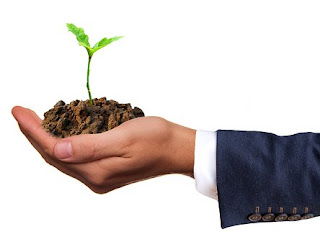By William T. Batten
What makes someone successful?
Many things help, there's no question. Seeing what other people don't. Being lucky. Having the courage to try things even when they're risky. Money. Connections. Specialised training and all the right certifications.
If you have all of these, you'll probably succeed. Then again, you might not. And if you have none of them? Well, you might just succeed anyway.
How do people do it? How does one person rise above the crowd? Is it really a matter of chance or some mysterious, undefinable X-factor?
Einstein didn't think so. He had a very clear idea on what allowed him to crack some of the greatest physics puzzles in history. And it certainly wasn't his intelligence.
It's resilience - the ability to stick with a problem. If you keep trying after everyone else gives up, you'll find the solution eventually. And when you do, people will call you a genius.
"It's not that I'm so smart, it's just that I stay with problems longer." - Albert Einstein
I'm not saying anything new here. You already know the value of endurance. The athlete who can keep pushing a second longer will win the gold. A businessperson who can tolerate uncertainty a day longer will achieve miracles.
It's only failure when you quit. Everything else is a lesson.
How do you improve your resilience? You keep your body healthy, for a start. Light exercise and eating the right foods will fuel you and stave off illness. But your body is only half the picture. Resilience is as much a mental game.
Meditation is a great way to strengthen your mind. Metta meditation, also known as loving-kindness meditation, is so effective that just ten minutes a day can slash your stress levels. This is why everyone from soldiers to students to healthcare professionals turn to meditation. Many people from these high stress groups swear by it to keep themselves functioning.
For people who struggle with meditation, self-hypnosis is another option. It achieves a similar mental state to meditation, only some people find it easier and more effective. I recommend it - it's done wonders for my health. A paper published in Complementary Therapies in Clinical Practice showed that it reduces stress hormones in the body in just a few weeks.
How do athletes stay focused, even under pressure?
Sports psychologists like to encourage visualisations to improve performance, stop stress and even heal from injury.
Even just simple things, like staying optimistic and socialising improve everything from your mood to your immune system and healing rate. And they decrease your risk of getting sick or injured in the first place.
What makes someone successful?
Many things help, there's no question. Seeing what other people don't. Being lucky. Having the courage to try things even when they're risky. Money. Connections. Specialised training and all the right certifications.
If you have all of these, you'll probably succeed. Then again, you might not. And if you have none of them? Well, you might just succeed anyway.
How do people do it? How does one person rise above the crowd? Is it really a matter of chance or some mysterious, undefinable X-factor?
Einstein didn't think so. He had a very clear idea on what allowed him to crack some of the greatest physics puzzles in history. And it certainly wasn't his intelligence.
It's resilience - the ability to stick with a problem. If you keep trying after everyone else gives up, you'll find the solution eventually. And when you do, people will call you a genius.
"It's not that I'm so smart, it's just that I stay with problems longer." - Albert Einstein
I'm not saying anything new here. You already know the value of endurance. The athlete who can keep pushing a second longer will win the gold. A businessperson who can tolerate uncertainty a day longer will achieve miracles.
It's only failure when you quit. Everything else is a lesson.
How do you improve your resilience? You keep your body healthy, for a start. Light exercise and eating the right foods will fuel you and stave off illness. But your body is only half the picture. Resilience is as much a mental game.
Meditation is a great way to strengthen your mind. Metta meditation, also known as loving-kindness meditation, is so effective that just ten minutes a day can slash your stress levels. This is why everyone from soldiers to students to healthcare professionals turn to meditation. Many people from these high stress groups swear by it to keep themselves functioning.
For people who struggle with meditation, self-hypnosis is another option. It achieves a similar mental state to meditation, only some people find it easier and more effective. I recommend it - it's done wonders for my health. A paper published in Complementary Therapies in Clinical Practice showed that it reduces stress hormones in the body in just a few weeks.
How do athletes stay focused, even under pressure?
Sports psychologists like to encourage visualisations to improve performance, stop stress and even heal from injury.
Even just simple things, like staying optimistic and socialising improve everything from your mood to your immune system and healing rate. And they decrease your risk of getting sick or injured in the first place.
Want to learn how to use these techniques? The March edition of Awakened Thought focuses on resilience. This is just a taste of the techniques you can start today that will improve your resilience. You'll be happier and healthier if you do.
As a side effect, you'll succeed the way Einstein did - by sticking with his problems longer.
Read all about this and other Guided Thought products here:
https://guided-thought.com/
As a side effect, you'll succeed the way Einstein did - by sticking with his problems longer.
Read all about this and other Guided Thought products here:
https://guided-thought.com/










Comments
Post a Comment